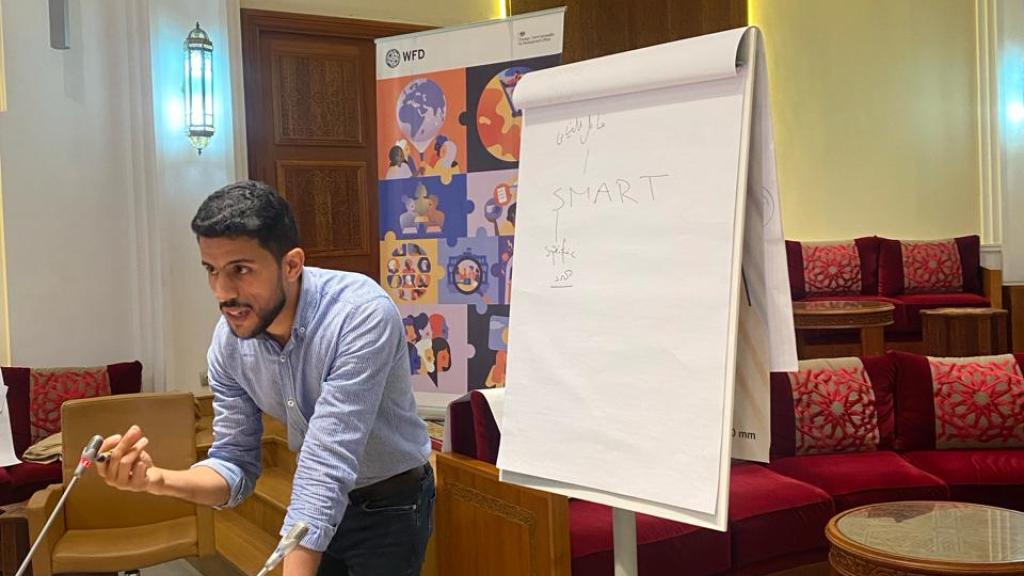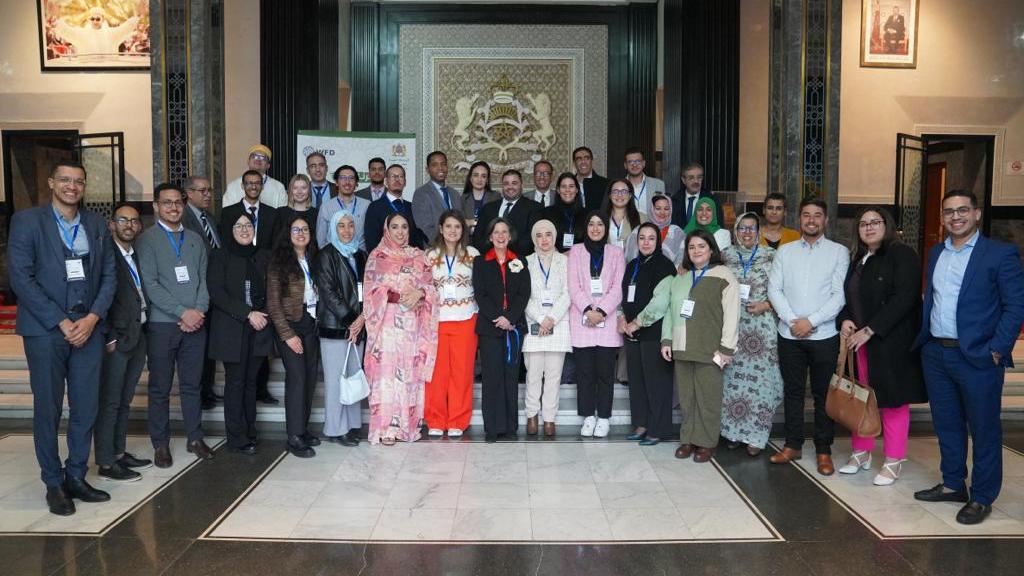E-governance and digital transformation: building a bridge of trust with CSOs and parliament in Lebanon

Since the 2018 parliamentary elections, Lebanon’s commitment to digital transformation has ramped up. The switch to an e-government builds on a growing momentum amongst politicians and civil society activists who believe that digital transformation can increase transparency and accountability within the government.
As part of its programme to Strengthen Parliamentary Practices and Accountability in Lebanon, in 2018 WFD brought together 14 leading Lebanese civil society organisations (CSOs) in the IT sector on a study visit to Estonia. The objective was to create a partnership for change on e-governance in Lebanon and to enable dialogue and cooperation with the Lebanese Parliament.
The visit to Estonia helped introduce the CSOs to e-governance in Estonia and resulted in the formation of a coalition between the 14 CSOs known as the Digital Transformation Network (DTN); which is now one of the main partners in WFD’s programme. WFD also delivered training on the topic to the group.
Following these successes, WFD continued to support e-governance in Lebanon as part of its 2019 programme: Strengthening Democratic Mechanisms for Accountability and Dialogue 2019. WFD was successful in building trust and collaboration between the DTN and the ICT Parliamentary Committee. WFD’s coordination and communication efforts meant that the ICT Parliamentary Committee realised the added value of working with the DTN. As a result, the relationship between the parliament and the DTN changed from one of a lack of trust to one of engagement and collaboration.
In addition, WFD facilitated the attendance of the DTN in the ICT Parliamentary Committee meetings where opportunities of collaboration between the two were discussed. One year later, the DTN experts have become a source of support for MPs and are seen as a ‘go to’ contact for information and analysis on the key issue. The network is supporting several MPs by supporting in the drafting and advocacy of bills related to e-governance.
When asked about his experience working with the DTN, MP Edgar Traboulsi said:
“I am really happy co-working with DTN. Their support is invaluable to my work. They are experts in both the technical and lobbying sides. Their support to my two proposed laws on online education and professional training was great. I had no better supporter organizing a two-day conference to introduce my proposals to experts, deputies, and media.”
Key achievements of Digital Transformation Network (DTN)
- During the past year, the DTN has focused its work on e-governance legislations in several areas, including education and data privacy and protection.
- The DTN has been publicly campaigning for an e-learning system and with the help of WFD has been able to present their ideas to several MPs who have taken up interest in the matter. These efforts paid off amidst the COVID-19 pandemic when e-learning became a necessity as schools have closed in response to the pandemic and e-learning has taken on greater significance.
- WFD supported a workshop by DTN which aimed to develop the National Curricula. The workshop was successful and resulted in the recommendation to have “technology” as a mandatory subject in schools. The DTN is still advocating for the relevant bill to be adopted by the parliament so it can be applied at a national level.
- WFD has initiated talks between the DTN and the speaker of parliament and the administration concerning remote operation of the parliament which has led to the DTN performing an assessment for the parliament’s ICT.
The DTN has not only been an advocator for e-governance, but they have also acted as a success story for CSOs and parliament collaborating towards achieving shared goals. The network has accomplished great things before its one-year anniversary, and it counts on the support of WFD to maintain momentum and guarantee the digital transformation in Lebanon that will help to deliver a more transparent and inclusive government.



